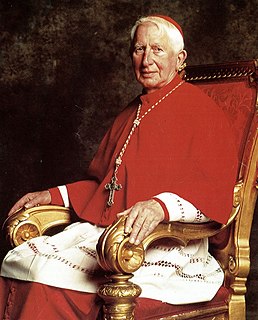Top 31 Quotes & Sayings by Basil Hume
Explore popular quotes and sayings by an English priest Basil Hume.
Last updated on April 15, 2025.
Why God should want and need us is a mystery. But it is true: otherwise he would not have created us and life would ultimately have no meaning for us. It is good to remember that in God the is a constancy, a consistency of attitude which never changes, irrespective of what we are or how we act: he never changes in is wanting us or needing us.






















